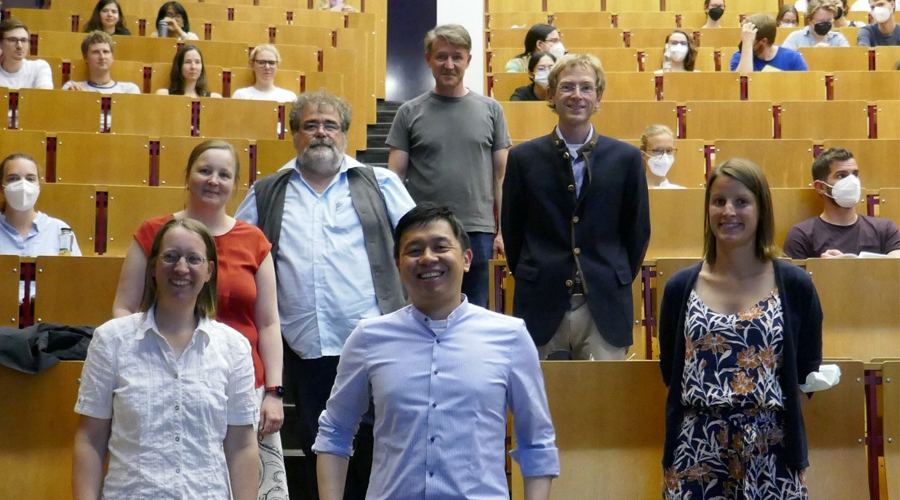In bioscientific and clinical research, more and more larger and more complex data sets have to be analysed – partly due to the increasing use of omics technologies. In order to teach students in the three MHH bioscience Master’s programmes, which include the Master’s programme in Biomedical Data Science, the statistical and analytical methods needed for the correct scientific evaluation and assessment of such omics datasets, lecturers from various MHH institutes* launched the inter-programme module “Biostatistics, Omics Techniques and Big Data” in 2019. The module received funding of 340,000 euros for the three-year establishment phase as part of the “Quality plus – Programme for Good Teaching in Lower Saxony” funding programme of the Lower Saxony Ministry of Science and Culture.
On 17 June 2022, students, lecturers and interested guests were able to celebrate the successful establishment of the module at a mini-symposium at the MHH. After the welcome by MHH President Prof. Dr. Manns, the invited speakers gave exciting insights into their research topics, which revolved around the planning of data-intensive studies, data collection and evaluation using reproducible pipelines, and data visualisation.
In the module, the experts go into the special features of the various omics methods: They refer to basic data of complete genomes (genomics), genetic information of read RNA products (transcriptomics), formed proteins and carbohydrate compounds (proteomics and glycomics) as well as the observation of the complete metabolism (metabolomics).
The interdisciplinary module was offered for the first time in the summer semester 2020 for the Master’s degree programmes Biochemistry and Biomedicine as an elective module. Since the summer semester of 2022, students of the newly founded Master’s programme Biomedical Data Science have also been taking this module, which is a compulsory module for them.
A special feature of this module is the interdisciplinary cooperation of lecturers from the various omics fields and biometrics, which not only promotes mutual understanding, but also gives students a comprehensive insight into all fields and ensures future-oriented studies.
*Institute of Biometry, Institute of Toxicology/Central Research Unit Proteomics, Institute of Pharmacology/Central Research Unit Metabolomics, Institute of Clinical Biochemistry, Central Research Facility Genomics
The photo shows Lecturers and speakers at the mini-symposium on 17 June in Lecture Hall R (Photo: Dr. Gustav Meyer, MHH)

